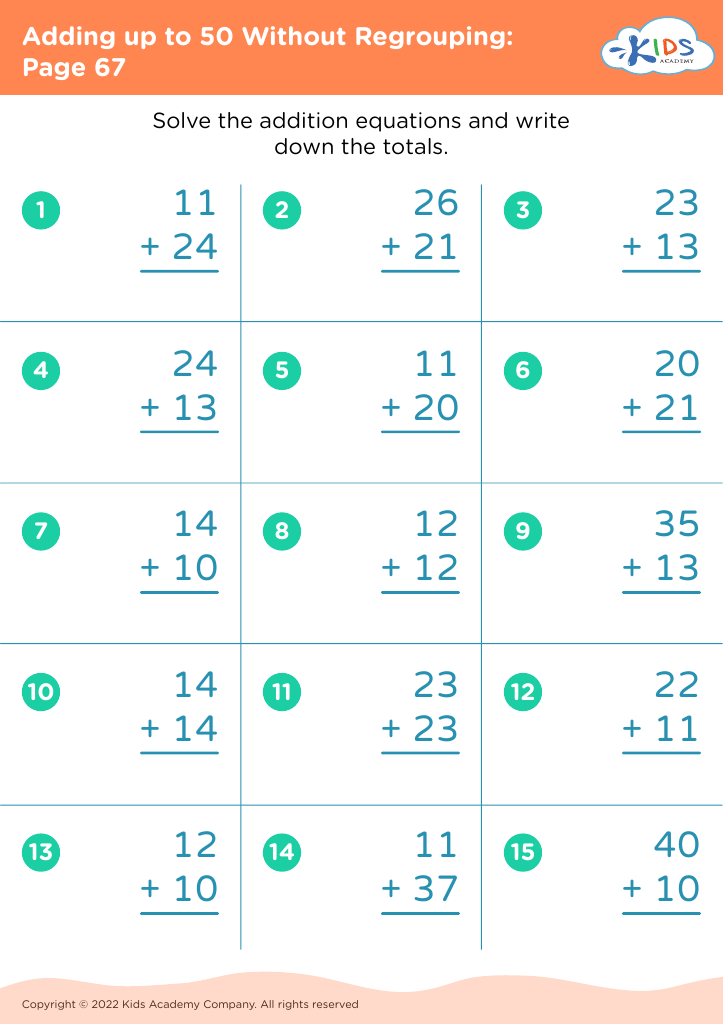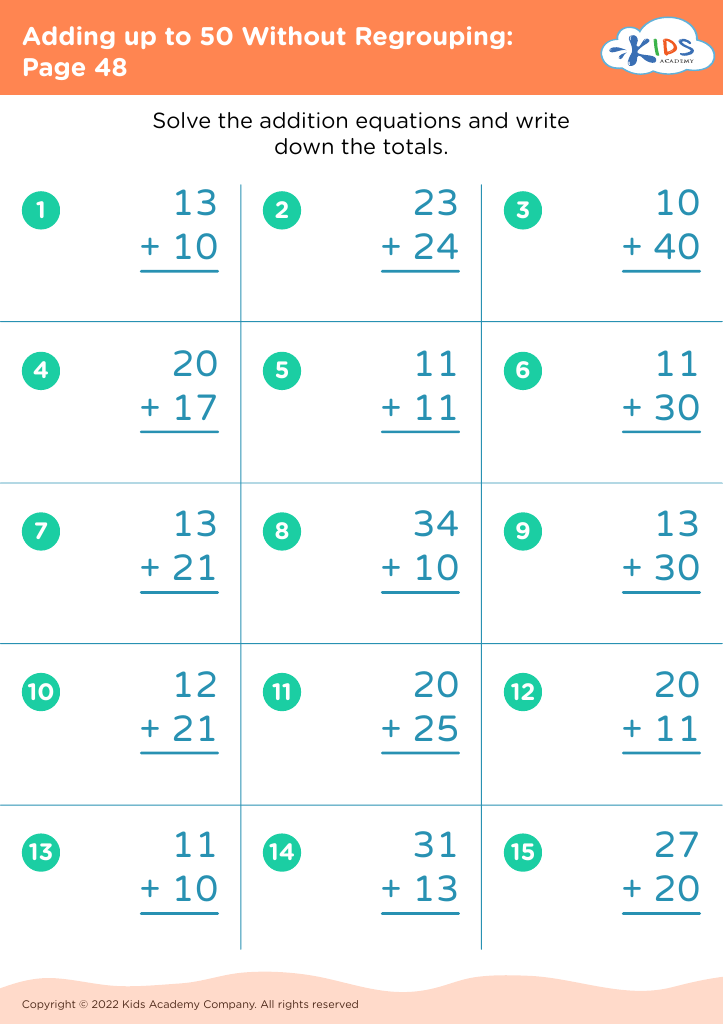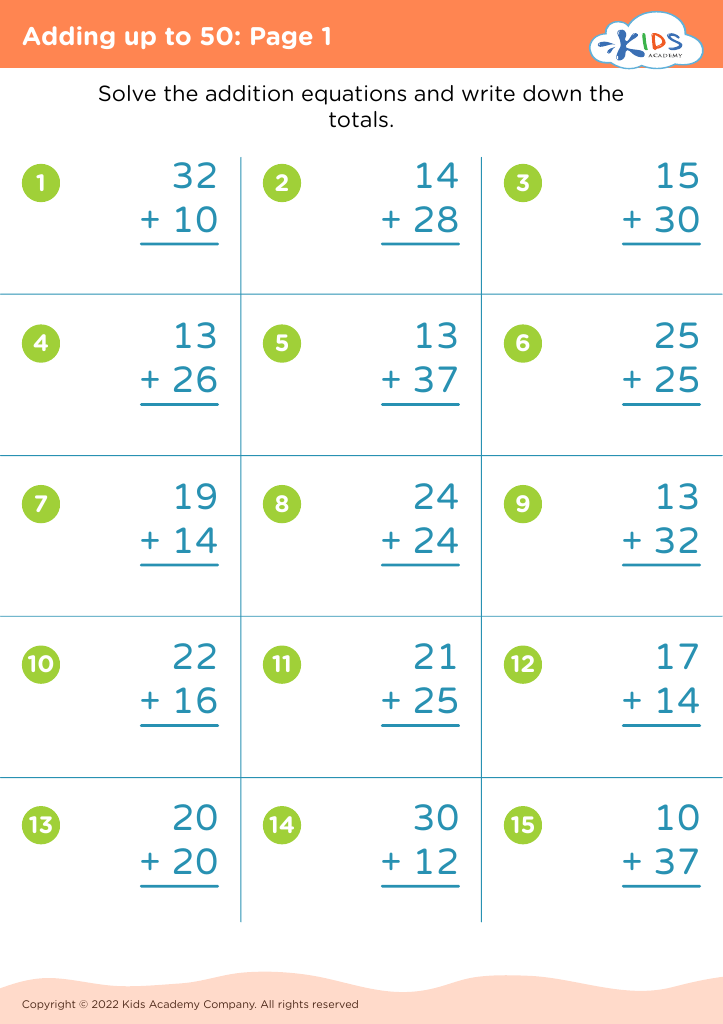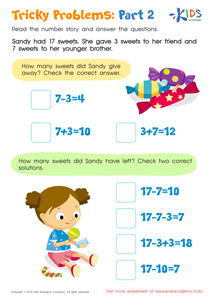Basic Addition Grade 2 Adding up to 50 Worksheets
7 filtered results
-
From - To
Explore our engaging "Basic Addition Grade 2: Adding Up to 50 Worksheets" designed to strengthen your child's foundational math skills. Tailored for second graders, these worksheets offer a variety of exercises that make learning addition fun and interactive. Students will practice adding numbers up to 50, gain confidence with key concepts, and improve their problem-solving abilities. Ideal for both classroom use and homework reinforcement, our worksheets cater to different learning styles and paces. Enhance your child’s math journey today with hands-on activities that ignite curiosity and support a solid understanding of basic addition!
Basic addition using numbers up to 50 is a fundamental skill for second graders that lays the groundwork for future mathematical concepts, critical thinking, and problem-solving abilities. Understanding addition enhances a child's numeracy, enabling them to interpret and solve real-world problems effectively. As children grasp the concept of combining numbers, they gain confidence in their math skills, which can significantly impact their overall academic performance.
For parents and teachers, nurturing a child's addition skills is essential because it supports their cognitive development. Proficiency in addition allows students to progress to more complex operations, such as subtraction, multiplication, and division, which are crucial benchmarks for education in later grades. Additionally, strong basic math skills foster a positive attitude towards learning, diminishing math anxiety that can develop if these foundations are weak.
Moreover, practicing addition helps children develop perseverance and patience while nurturing their analytical abilities. It also opens up conversations about money, time, and measurements in daily life, solidifying the relevance of math outside the classroom. By emphasizing the importance of mastering addition within this range, adults invest in their children's academic success and equip them with the necessary tools to navigate a world that increasingly relies on quantitative reasoning.

















